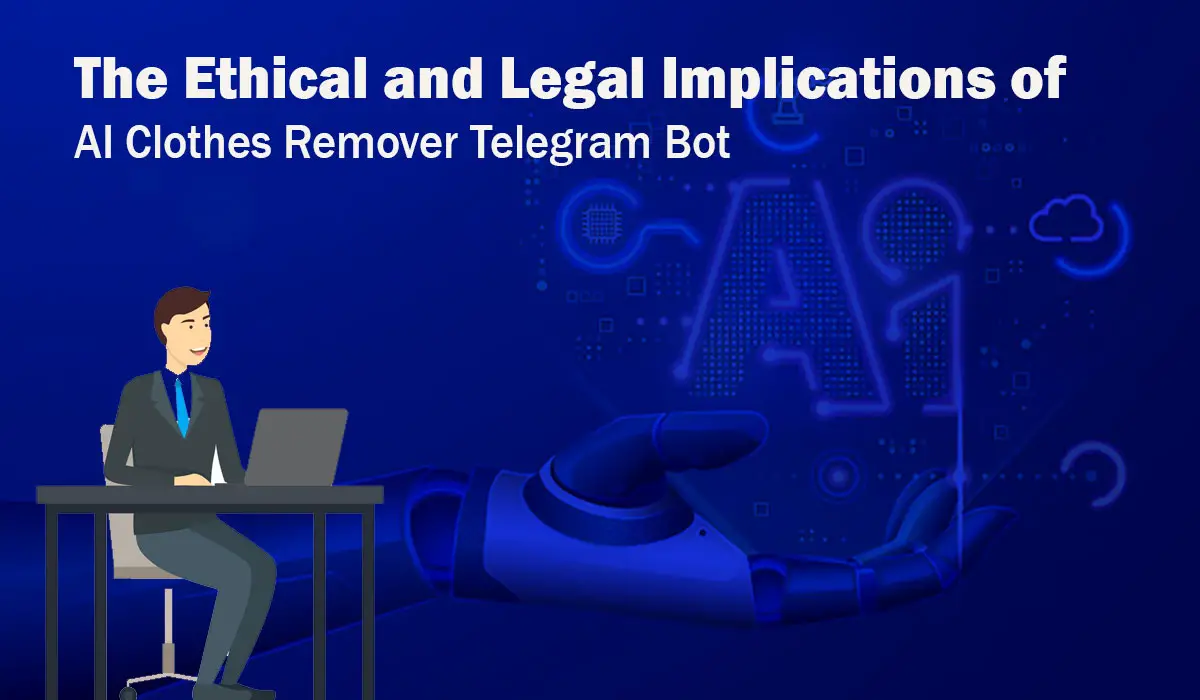The advancement of artificial intelligence (AI) technology has brought both excitement and concerns to various aspects of our lives. One particular area that has sparked controversy is the emergence of AI clothes remover bots. These bots, often available through Telegram bot links, claim to remove clothing from images using AI algorithms. While this technology may seem intriguing, it raises significant ethical and legal implications that need to be carefully considered. In this article, we will explore the ethical and legal concerns surrounding AI clothes remover bots, as well as discuss responsible usage and important FAQs.
Ethical Implications of AI Clothes Remover Bots
Invasion of Privacy
One of the primary ethical concerns associated with AI clothes remover bots is the invasion of privacy. These bots have the potential to remove someone’s clothing from an image without their consent, violating their privacy rights. By using such technology, individuals may unknowingly have their intimate or sensitive images exposed without their permission, leading to embarrassment, harassment, or emotional distress.
Objectification
AI clothes remover bots contribute to the objectification of individuals, particularly women. The technology reduces a person’s image to a mere object, emphasizing the sexualization of their bodies. This objectification perpetuates harmful societal norms and reinforces the notion that a person’s worth is solely based on their physical appearance, undermining their dignity and autonomy.
Read also: How to Use Botify AI
Normalization of Non-Consensual Photos
The availability and ease of access to AI clothes remover bots can lead to the normalization of non-consensual photos. When people become accustomed to using or encountering such technology, it may desensitize them to the seriousness of non-consensual image sharing. This normalization can further perpetuate a culture of online harassment and contribute to the proliferation of explicit content without consent.
Legal Implications of AI Clothes Remover Bots
Violation of Privacy Laws
AI clothes remover bots often operate by processing and manipulating images that may contain identifiable individuals. Using these bots to remove someone’s clothing without their consent can violate privacy laws, as it involves the unauthorized alteration and dissemination of personal images. Depending on the jurisdiction, individuals found using or distributing such images may face legal consequences.
Copyright Infringement
Another significant legal concern associated with AI clothes remover bots is copyright infringement. In many cases, the images processed by these bots are protected by copyright, and altering or distributing them without the copyright holder’s permission constitutes a violation of intellectual property rights. This raises questions about the legal implications for both the creators and users of AI clothes remover bots.
Using AI Clothes Remover Telegram Bot Responsibly
While the ethical and legal concerns surrounding AI clothes remover bots are substantial, it is essential to address responsible usage. Here are some guidelines for using AI clothes remover bots responsibly:
- Obtain Consent: Always ensure you have the explicit consent of the individuals whose images you are processing with the bot. Without their consent, using such technology is unethical and potentially illegal.
- Respect Privacy: Respect the privacy and dignity of others. Do not share or distribute explicit images without proper authorization, as it can lead to severe consequences for the individuals involved.
- Understand Legal Consequences: Familiarize yourself with the privacy and copyright laws applicable in your jurisdiction. Ignorance of the law is not a valid defense, so ensure you comply with the legal framework.
- Promote Consent Culture: Advocate for a culture that prioritizes consent and respect. Encourage open conversations about the ethical implications of AI clothes remover bots and educate others about the potential harms they can cause.
- Seek Alternative Uses: Instead of using AI clothes remover bots for invasive purposes, explore alternative applications of AI technology that can benefit society without violating privacy or ethical boundaries.
FAQs about AI Clothes Remover Telegram Bot
Q: Are AI clothes remover bots legal?
A: The legality of AI clothes remover bots depends on the jurisdiction and the circumstances of their usage. However, using them without proper consent is likely to violate privacy laws.
Q: Can AI clothes remover bots be used responsibly?
A: Yes, AI clothes remover bots can be used responsibly by obtaining explicit consent, respecting privacy, and understanding the legal implications.
Q: What are the potential consequences of using AI clothes remover bots?
A: The consequences can include legal penalties, damaged relationships, psychological harm, and perpetuation of non-consensual image sharing.
Q: How can I ensure responsible usage of AI clothes remover bots?
A: To ensure responsible usage, always prioritize consent, respect privacy, educate yourself about the law, and promote a culture of consent and respect.
Q: Can AI clothes remover bots be used for free?
A: Some AI clothes remover bots may offer free usage; however, it is important to consider the ethical and legal implications before using them.
Conclusion
AI clothes remover bots may appear fascinating, but their ethical and legal implications cannot be overlooked. The invasion of privacy, objectification, normalization of non-consensual photos, and violation of privacy laws and copyright are serious concerns that demand our attention. To navigate this technology responsibly, it is crucial to prioritize consent, respect privacy, understand the legal consequences, and promote a culture that values consent and respect. By doing so, we can ensure that AI technology is used in a manner that upholds the dignity and rights of individuals.

